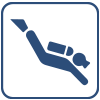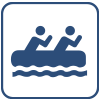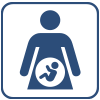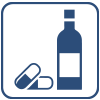
To travel is to live!
There's no better feeling than escaping the daily grind; the wind in your hair, not a care on your mind. But travel is not all rest and relaxation! On the contrary, heading to new and distant regions can throw you any number of curveballs.
Whether you've taken a spill on the sidewalk, been mugged in a market or picked up an exotic disease, our resident travel insurance guru Eugene Wylde can help to get you back on track quicker than you can say 'happy holidays!'
In this guide you'll discover:
What's included in a typical policy and the type of cover you could expect. You can find the top reasons for buying travel insurance and learn which six steps to keep in mind when choosing cover for your trip. Looking for top-notch insurance? We also provide you with some terrific tips to help you find the best cover available for your holiday. If travel insurance exclusions are what you're after, we've got that too! Finally, if your holiday takes a nosedive (although we certainly hope it doesn't) we'll show you the ins and outs of making a claim.
Although you shouldn't bank on the worst possible scenario, it's hardly worth taking a gamble on your travels. Start reading to find out more and use the guide menu above to navigate your way around. Prefer a helpful handout?
Travel insurance is insurance that covers you for an array of sticky situations and any subsequent losses incurred when you're travelling in New Zealand or overseas. A typical comprehensive policy will cover you for:
Medical and hospital expenses
Cover in case you are injured or sick while overseas. Includes hospital stays, surgery, dental and prescription drugs.
Luggage and personal effects
If your baggage and personal items are lost, stolen, or damaged you would be reimbursed or the items replaced.
Cancellation cover
Cover for prepaid travel & accommodation if you need to cancel because of illness, accident, natural disaster or unforeseen circumstance.
Travel delay expenses
In the event your transport is delayed due to an unforeseen reason, your accommodation, meals, and transport costs will be covered.
Personal liability
Provides protection for you being legally liable for injuring other people or causing damage to their property.
Rental vehicle excess
If you hire a car and have an accident, you won't have to pay the excess (this could be as much as $7k!)
Family emergency
Cover for travel expenses if a close relative, or the person you're travelling becomes seriously ill, injured or dies.
Alternative transport
If your transport is cancelled on your way to a pre-booked event alternative transportation will be provided.

why is loved by kiwis compare travel insurance
We're not silly, we know that plenty of Kiwis go on holiday and have an amazing time exploring new and exciting places without buying travel insurance. But taking a gamble on your much needed break can be risky. Here's why!

Exxy Medical Costs
If you buy a policy for just one reason this is it! Falling ill or being injured while travelling overseas can be extremely costly. Daily hospital costs in the USA can reach up to $10,000, while emergency transport home can easily exceed $100,000!

Disasters Can Strike
Disasters can strike, anywhere in the world at any time! Travel insurance covers you for lost deposits and pre-paid travel arrangements for unforeseen circumstances like severe weather, accidents or illness world-wide.

Your Stuff is Important
Loss, theft or damage to your prized possessions can be a common, yet gut-wrenching experience. If your personal belongings go AWOL on holiday your policy will pay to replace or repair them. Win!

People Get Sued
Imagine you are involved in an accident overseas or cause at-fault damage! Have peace of mind that your travel insurance policy will cover you for legal liability - usually up to at least $2 million. Phew!

Because Family Matters
Imagine you’re mid-martini when bad news breaks. Should you need to return home to your family you’ll be covered for unforeseen events like injury or illness of a close relative.

You Deserve to Relax
Travel insurance will take a load off so you can get some R&R. A comprehensive policy will cover you for an array of sticky situations while you're travelling.
There are hundreds of companies in the market from supermarket giants to niche travel insurance brands all offering cover. So where do you start? You can jump online and compare quotes online using a comparison site like ours, go direct to the insurers, or even buy over the phone. Whichever method you decide is right for you, you still need to follow the same steps. From where you're going, to what you're going to do when you get there...we take you through the six steps to buy travel insurance.
1. Where are you going?
When quoting, some insurers ask you to select the countries you are travelling to and others ask you to choose a region.
WW
Worldwide
Means anywhere in the world.
EU
Europe
Means all European countries, including UK.
AS
Asia
Generally means Asia and the India subcontinent excluding Japan.
PC
Pacific
Means the South West Pacific including Australia, Indonesia/Bali, Fiji.
Perhaps you're taking a cruise...
Even if you're going on a cruise in New Zealand waters, once your ship has left port, you're no longer covered for hospital or medical expenses by Medicare (or your usual private health care provider). So even if you're going on a domestic cruise you'll need to purchase a Pacific policy.
2. How long for?
When buying travel insurance online you'll need to enter a start date, and end date of travel. The start date should be the date that you leave home (not the date you land in your destination if you're flying) and the return date should be the date you return from your trip. If you travel often you may save some cash by purchasing an annual multi-trip policy rather than a single trip each time you go away.
3. who are you travelling with?
You'll need to select the number of travellers to be included in the policy, and enter the name and date of birth of each traveller. In most cases kids are included for no additional cost within your policy as long as they're under 21, not in full time employment and named on your policy. Yippee!
4. What are you doing when you get there?
It's easy to get caught out by participating in 'extreme' sports before realising you're not covered! Quite a few sports and activities are excluded from standard policies, so it's always a good idea to check whether your intended adrenaline activity is covered:
Activities that are usually covered:
 Cycling
Cycling
 Kayaking
Kayaking
 Swimming
Swimming
 Trekking
Trekking
 Recreational sports
Recreational sports
 Surfing
Surfing
 Zorbing
Zorbing
 Horse riding
Horse riding
Activities that are sometimes covered:
 Skiing
Skiing
 Abseiling
Abseiling
 Rock climbing
Rock climbing
 Heli-skiing
Heli-skiing
 Sailing
Sailing
 Bungee jumping
Bungee jumping
 Scuba diving
Scuba diving
 White water rafting
White water rafting
Activities that are typically never covered:
 Skiing off season
Skiing off season
 Base jumping
Base jumping
 Cross country charity
Cross country charity
 Motorbiking
Motorbiking
 Motor racing
Motor racing
 Professional sports
Professional sports
 Running with bulls
Running with bulls
 Hunting/shooting
Hunting/shooting
5. what are you taking with you?
Watch out for single item limits within your cover. If you're taking your Louis Vuitton luggage, surfboard, DSLR camera, golf clubs, laptop, or even your wedding rings you should make sure your policy covers for these high value items. You can increase the amount you are covered for by paying an additional premium.
6. do you have any medical conditions?
Travel insurance exists to cover the unforeseen, not medical conditions you're already aware of. Medical conditions that exist prior to purchasing your policy may not be covered. Whether you've broken your arm, undergone hip replacement surgery, or suffered a bout of bronchitis, you'll need to disclose any injuries, illnesses and major procedures to your insurer. Depending upon your condition, you might have to fill out a medical declaration signed by your doctor and have it assessed by the travel insurance company before you buy your policy. Pre-existing medical conditions apply to everyone listed on the certificate of insurance. So, the person who buys the travel insurance policy, travelling companions, and close relatives too. In the instance of cancellation, it also applies to close relatives that aren't necessarily travelling with you.

There's no such thing as the best travel insurance, but here's six tips to help you find the right policy for your trip...
1. Pick the right policy
Single trip policies cover you for one trip (from one day up to 18 months and can be extended from overseas). Annual multi-trip policies cover you for as many trips as you make over the course of a year (internationally & domestically)
2. Choose your level of cover
Most insurers have 3 levels of cover to choose from: Basic (often medical cover only), mid-range and comprehensive. You should pick the cover that best suits the type of holiday and activities you have planned. Remember that not all adventure activities are covered automatically.
3. Go with a reputable brand
A good way to find a decent policy is to ask friends and family who they've bought from before. Reading past customer reviews is an excellent way to get the inside story - there's no sugar-coating it!
4. Shop Around
ust as you might compare flight prices, you can compare insurance policies too. Travel insurance policies vary in price and benefits. A comparison website is an easy way to digest all the information in one place.
5. Be honest
Don't tell porky pies. It's important to be honest with your insurer when you take out a policy. If you have any pre-existing conditions be upfront about them so that you know you're covered.
6. Buy early
If your trip is cancelled or delayed due to unforeseen circumstances, you'll be covered for any pre-paid expenses. As soon as you've booked your holiday, travel insurance should be next on your list!
Travel insurance is a must have for any holiday, but like any type of insurance it's important to realise there are cases where you will not be covered. Because holidays don't always go to plan, it's a good idea to understand your policy before you head off. Keep reading to learn the most common travel insurance exclusions. You'll find a full list of general exclusions within your chosen Product Disclosure Statement.
Unattended Items
In a nutshell, look after your stuff! Anything you leave out of reach, that isn't properly supervised, or isn't safely locked away will be considered unattended and (most probably) won't be covered if you try to claim for it being lost or stolen. E.g. you wouldn't be covered if you left your phone in the back of a taxi, or on the table in a restaurant. Luggage that is left in a storage room of a hotel once checked out is also considered unattended!
Being reckless
We know that travel is all about new and exciting experiences, but if you deliberately put your life in danger (like jumping off a cliff into the sea) you wouldn't be covered. Injuries or loss when alcohol or drugs have been involved may not be covered either. Not too many piña coladas now!
High risk activities
Hey there adrenaline junkie! Many high risk activities and extreme sports (e.g. American football, boxing, skydiving, competitive cycling , rock climbing, polo and motor sports) are not covered. Always check whether your planned activiites are covered before you go jumping out of a plane (for example.)
Travel supplier financial default
Does your travel agent understand enough about your destination to cover you for unforeseen circumstances? Does they have a good safety record? Are they well-connected to the local authorities? If you're travelling with a travel agent, don't forget to ask them about their insurance policy.
Countries With Travel Warnings
If you visit a destination or region that Smart Traveller has issued a travel warning or you would not be covered for an incident relating to that warning. This can range from natural disasters, terrorist threats and riots. Similarly, if you are heading to a natural disaster zone or region of civil unrest, you would no longer be able to purchase cover for the events taking place in the media.
Some Cancellations
Cancellation covers you for transport and accommodation expenses if you experience delays or cancellation of your travel plans because of illness, accidents, or other unforeseen circumstances such as a sudden natural disaster. You can't just cancel your trip for any reason and be reimbursed. You're won't be covered if your flight is cancelled due to a mechanical fault, overbooking or airline company closure. This is the airlines responsibility.
Pre-Existing Medical Conditions
Some medical conditions that exist before you travel won't be covered. But if you do have a pre-existing condition, it's not to say that you will be travelling without any cover at all. You can still buy a policy that would cover you for all other benefits, and for any unrelated illness or injury to your pre-existing condition would of course still be covered.
Conditions that are usually covered:
 Asthma
Asthma
 Cataracts
Cataracts
 Diabetes
Diabetes
 DVT
DVT
 High blood pressure
High blood pressure
 High cholesterol
High cholesterol
 Migrane
Migrane
 Osteoporsis
Osteoporsis
Conditions that may require a medical assessment:
 Awaiting surgery
Awaiting surgery
 Cystic fibrosis
Cystic fibrosis
 Epilepsy
Epilepsy
 Heart problems
Heart problems
 Lung problems
Lung problems
 Organ transplant
Organ transplant
 Pacemakers
Pacemakers
 Stroke
Stroke
Conditions that are NOT typically covered:
 Blood thinning meds
Blood thinning meds
 Child birth
Child birth
 Alcohol or drug addiction
Alcohol or drug addiction
 Elective surgery
Elective surgery
 Mental illness
Mental illness
 STD
STD
 Recent surgery
Recent surgery
 Terminal illness
Terminal illness
Pregnancy
A few insurers consider pregnancy a pre-existing condition, so it's sometimes trickier to get cover in the later stages. Most insurers cover until 26 weeks, but some exclude cover for pregnancy altogether. Find out who offers travel insurance while pregnant.
Unlicensed travel
Travelling in/on a vehicle that you (or the driver) are not licensed to drive is not covered. Riding a motorcycle or scooter in Thailand or Bali is a common one. Make sure you wear a helmet too!
From time to time holidays don't go to plan, baggage goes missing, flights are delayed or people are unwell, all of which mean it's time to claim on your travel insurance policy. Here's some tips for when holidays don't go to plan.
Read your policy docs Understand what is covered and what is not, paying particular attention to exclusions and how to make a claim.
Have evidence Like receipts, bank statements, photographs, photocopies or serial numbers so you can prove ownership of your belongings.
Get written proof Get letters from your airline of flight delays & cancellations, and medical certificates for hospital stays - all written proof helps to back up your claim.
Report incidents asap! It is vital that you report any loss, theft or damage to your insurer, the local police, transport provider, or the relevant authority within 24 hours, or asap!
Be honest When you buy your policy and disclose any pre-existing conditions. If you lie about your medical history and become ill overseas your insurer may deny your claim.
Know who to call All insurers have telephone numbers to call in an emergency. It is a good idea to keep this number on you, along with your policy details.








